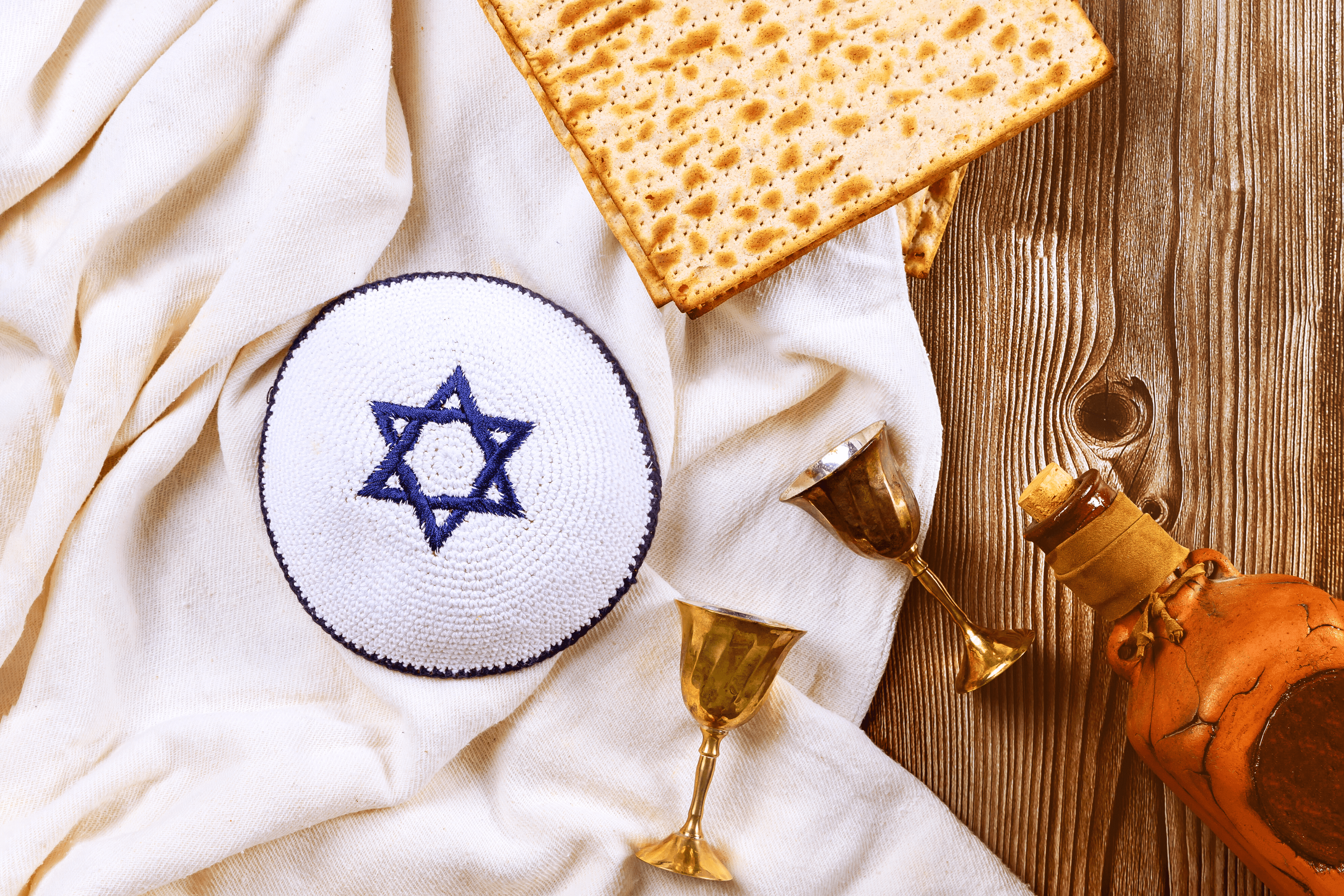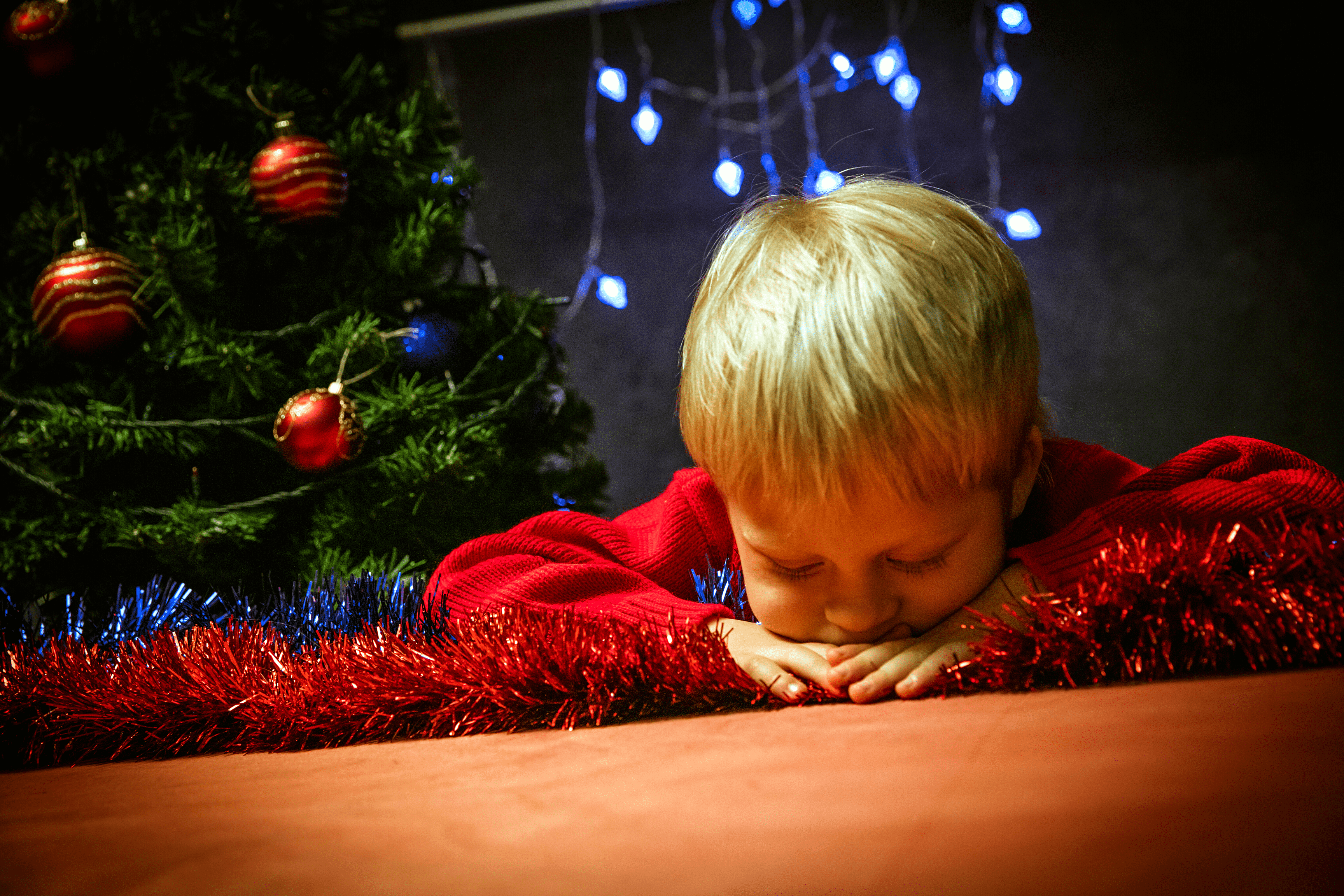
If the holidays are all about family, togetherness, food and fun, at least that’s what mine are about, then why the hell do I feel so much holiday stress? Shopping for the perfect gifts, budgeting for those gifts, wrapping and hiding those gifts(my brother and I were masters at finding the wrapped gifts my mom thought she had hidden well!). lol #sorrynotsorrymom Maybe we’re missing loved ones who have passed, or are no longer in our lives. Perhaps that one family member who has to talk all the time about his favorite orange president until you find yourself silently stabbing yourself under the table with a fork. Many people suffer from all these different types of stress during the holidays. So let’s chat about them and how to work to prevent the holiday blues from tarnishing your holiday mood.
Why the hell do I feel holiday stress?
In the Jewish faith the New Year is usually in early September. So my stress starts a bit earlier than some. Rosh Hashanah and Yom Kippur are the two biggest holidays of the year for us.
They involve a lot of cooking and eating, entertaining, and of course going to a LOT of services at the local synagogue (or since COVID- doing a lot of zoom services). Since school starts in mid August the Jewish holiday seems to seriously sneak up on a girl. I mean didn’t we just have back to school night last week!?
So, my holiday stress in September starts there and then doesn’t really die down until January 1st. Many of us are in chaos mode prepping for meals, with mounds of salads, and freezers stuffed with desserts! Oh the desserts! Mmmmm mmmmmm And then if you add into observing Shabbat you lose a few days of cooking there.


The Holiday Stress of Gift Giving – The Financial Divide
November and December are the key months for worrying about getting the perfect gift without breaking your piggy bank open.
As a crafter I tend to lean towards making things for my loved ones. Sometimes everyone gets homemade knit or crocheted scarves. Or a piece of glass jewelry I have made.
If you have a knack at creativity I suggest starting your naughty and nice list in September so you have enough time to make everyone your beautiful creations. It may be time consuming, but for me, the cost is lower and I am happy while making the items because it gives me joy to know they are going to be gifts for my loved ones. So for this reason it fits several needs for me.
- Financial Needs – Low cost for supplies.
- Happiness in the sense that I am making gifts for my loved ones.
Black Friday and Cyber Monday. Are they all they’re cracked up for? If you have a list and you know what you’re looking for then it can be helpful to get some steals on these days.
However it’s a total SENSORY OVERLOAD situation and you can get caught going down the rabbit hole if you’re not careful. Make sure your list is ready and you know roundabout brands and prices before you start.
I actually have a “watch list” in my amazon account so I can quickly see what’s on sale and when.
Layaway. Schmaway. My dad always told me not to spend what I don’t have. Be careful putting things away that you have to start paying for later. Be careful of “introductory credit card offers”.
If you cannot pay the amount by the time the bill comes around you may get hit with some high interest rates. Those add up fast too!
Friendsgiving is Not Always so Giving
Thinking about driving 5 hours in a car with everyone else in North America to sit with your cousins 5 year old who likes to spit peanuts at you doesn’t sound like the american dream? Fighting with your sister’s boyfriend Earl who has definite opinions about the political climate isn’t appealing to you? Making sure you spend 4 Christmases with all four of you and your partner’s divorced parents in one day is grating on your last nerve? (See the movie Four Christmases to get the full vibe from this statement) All of these situations can cause you physical and emotional stress. It can impact your sleeping.
My mom stresses that she wont wake up on time to get to the airport with all the traffic and extra holiday travelers. She literally won’t sleep the night before our trips. Exhaustion takes its toll on every being of your body, both physical and emotional.
Blood pressure and other body responses. As I have gotten older I can see that my body takes out its stress via my BP and my gastric system. Stomach cramps and other digestive issues will plague me. My heart may flutter or feel that it is racing. It can be uncomfortable and last for long periods of time.
I have heard my friends joke about “upping their xanax” to get through the fall and winter seasons. What’s sad is that it’s needed and normal for so many people around the world.
Holiday Sadness is a form of Holiday Stress
Let’s Talk About the Elephant in the Room – Grief, Sadness and Holiday Depression. The American Psychological Association website has a great article on holiday emotions. They say, “Although grief is something that’s experienced daily, holidays tend to amplify feelings of loss, especially in the first holiday season since the loss, psychologists say.
“It’s the first time you’ve been doing Thanksgiving and your December holiday without your loved one in your life, and that’s just huge,” said Sherry Cormier, PhD, who specializes in traumatic loss, grief and bereavement in Edgewater, Maryland.
“It amplifies that everything has changed for you. That everything is different than it used to be,” Cormier said. There’s a “cognitive dissonance between you feeling heartbroken and being around people … plus the expectation to be happy and celebratory and grateful,” she said. “I think that makes it hard for grief survivors in general.”
Being around friends and family while knowing someone is missing from the gathering creates an inevitable reality check, but one that’s not always easy.
“One of the things that teaches you the reality [of your loss] is the holiday time,” said Therese Rando, PhD, clinical director of the Institute for the Study and Treatment of Loss in Warwick, Rhode Island
“The human brain can’t grasp something as dramatic as the loss of a loved one,” she said, noting that, for many months after the death, it is common for survivors to pick up the phone to call the deceased, or look down the street expecting to see their late friend or relative arrive.
Especially with sudden death and traumatic death, such as those due to drug overdoses or homicide, we can’t absorb the reality of the loss, Rando said. “We only learn that by bumping up against it in our world.” They finish the article with two helpful suggestions.
Plan to make it work
To make it through the celebratory season in such trying circumstances, psychologists suggest that those dealing with grief and loss make a mental plan that includes minimizing anxiety and celebrating the lost.
The first step, Cormier said, is acknowledging that the holidays will be different, and to be proactive about what helps and what doesn’t. For example, consider the following:
- Are there some traditions you’d rather not do? Some may just be too painful. It may make sense to try something new.
- Do you want to celebrate in the same place? For instance, it might be better to travel this season instead of staying home.
- Who are the people you want to be around? Enjoy their company when they invite you for a visit.
- Can you handle an all-day celebration? Be flexible with yourself and let the host know you may only stay for a short while.

Those grieving also should recognize that how one anticipates an event, especially if one is stressed about it, almost always is worse than how it actually turns out. Also, the holiday is just like any other day in that it only lasts 24 hours. “It’s helpful to understand [there is a] before, during and after,” said Robin Goodman, PhD, executive director of A Caring Hand, a nonprofit in New York City providing services to grieving children and families.
“You will turn the page on the calendar,” she said. “If nothing else, you’ll have some relief on getting through the holiday, and knowing what worked, and what didn’t work.” Assessing the effect of one’s holiday experiences is important because it’ll help inform what to do in the following years.
“We learn to do holidays over time,” Rando said. “How you do it the first year is not how you do it the second year. You may choose to do something completely different the next year. You’re just making a decision on how to get through these holidays.” One also should expect to experience a range of emotions.
“The central task at the holidays is the bereaved person has to hold two realities simultaneously,” Rando said. “They acknowledge the loss of the person who’s not here that they want to be here, and acknowledge the presence of the people who are still here that they want to be connected to.”
This is why psychologists say that it’s key to find a way to include the memory of the lost in the celebration.
“Hopefully the [grieving] person will be given permission to talk about Mom on the holiday. It’s important to hear Mom’s name, or how every year she would burn those turnips,” Rando said. “This is the way we include people and have continued connections with them. It’s not true when you lose people in your life that you don’t continue to have them in your heart and mind.”
Creative memorials
Some may remember their loved one by donating to a cause that person cared about, lighting a candle, making a loved one’s favorite dish or mentioning their name in prayer. But others have devised more distinctive individual methods. For example:
- Skydiving, hot-air ballooning, mountain climbing or another activity the deceased enjoyed or always wanted to do.
- Gathering notes and stories about the deceased and putting them in a stocking or box to read aloud at the end of the night.
- Creating a table centerpiece with a photo or items the deceased found meaningful.
- Visiting the grave and pouring out a toast.
- Giving gifts in honor of the deceased – perhaps something that belonged to them.
- Making a pillow or craft from something that belonged to the loved one.
- Continuing a tradition, especially one that children may have shared with the loved one.
“I think what’s most important is that people make it meaningful to them and make it personal,” Goodman said.
Clearly the holidays are a time of stress in a good way and in a negative way. How you prepare for it, somewhat like a fire drill, will make a difference in how you manage it while you’re stuck in the middle of it. It helps to have someone on your side who can be your wingman when things get tough and you need to tap out. Try using “Mistletoe”. (See movie reference from before so you know what I’m saying).
